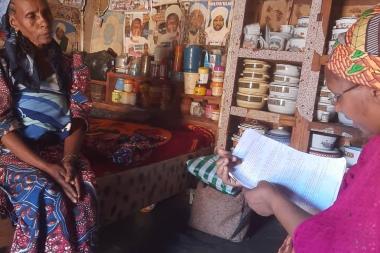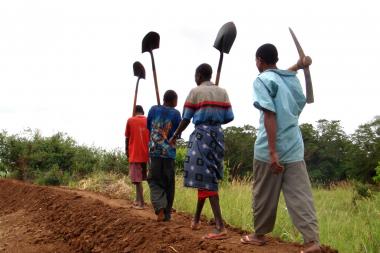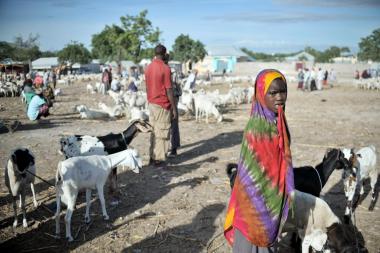Livelihoods, conflict and mediation: Somalia
This report is the second in a series highlighting learning emerging from a longitudinal study examining violent and non-violent conflict and mediation dynamics in Somalia and Nigeria.
The aim of the longitudinal study is to document and understand the challenges facing people with different livelihoods, particularly around disputes and conflict of various types, and how these are impacting lives and livelihoods.
Our research did not initially focus on particular types of disputes and conflict, but rather let the interviewees describe the types of disputes and conflict they had experienced in the last five years, including their views on the perpetrators and causes. The economic, environmental, political and social contexts at the local-to-national levels are continually evolving, and regional-to-global events such as the economic repercussions of Covid-19 are being felt at the local level.
We aim to capture how people are coping with and adapting their livelihoods to this dynamism. With each subsequent round of research, we will combine analysis of impactful events and trends at local-to-global scales to complement the narratives emerging from individual interviews. We will also be undertaking deeper analysis of some of the dispute and conflict dynamics mentioned during the interviews. Specific questions guiding the research include:
What are the most significant non-conflict shocks, stresses and constraints recently (in the last five years) and currently affecting pastoral and agropastoral livelihoods in insecure contexts in Nigeria and Somalia?
What types of disputes and conflicts are affecting livelihoods for women and men, and what are their impacts?
What types of actions have been taken to respond to and/or mitigate the various types of disputes and conflicts? Responses and mitigation strategies of interest may include formal and informal mediation and conflict-resolution initiatives, as well as household and community-level adaptations to conflict events.
When non-conflict shocks (e.g., flooding, drought or price increases) and stresses (e.g., dry-season challenges or elections) occur and/or crises develop, how are disputes and conflict incidences affected?
How, at an individual and community level, are households adapting livelihood strategies in response to disputes, conflict and other shocks and stresses?
Key messages emerging from this study include:
Shocks impact livelihoods already under pressure from emerging trends and long-running challenges. Recent, consecutive or concurrent shocks have eroded crop production and fodder availability. Three successive failed rainy seasons are affecting ability to grow crops, wellbeing of livestock, and subsequently the market value of products. Those with livestock had already been dealing with reduced incomes from lower livestock prices as a result of the Hajj cancellation in 2020 and 2021 due to Covid-19.
Emerging trends are impacting livelihoods. In particular, the expansion of farmland and subsequent reduction in grazing area is placing increased pressure on livestock owners, be they pastoralists or agropastoralists. This is also leading to disputes with farmers around trespassing and crop damage.
The emerging trends occur within a background of long-running issues related to power-sharing, peace and security. Although interviews describe lower levels of violence in the last five years, there are ongoing tensions along clan lines and the presence of armed groups. In Galkayo, ongoing tensions between clans across the Puntland and Galmudug administrative line restrict the movement of livestock despite the drought. The presence of armed groups in Jowhar continues to affect communities.
Despite the persistence of tensions, interviewees across the three interview sites express satisfaction and confidence in dispute resolution and conflict mediation measures. Most of these measures are community led, with clan elders continuing to play a key role in resolving disputes and conflict. In the case of Galkayo, interviewees note that, while clan leaders cannot intervene directly due to restrictions on cross-border movements, the Puntland Administration is stepping up measures to resolve cross-border tensions.



